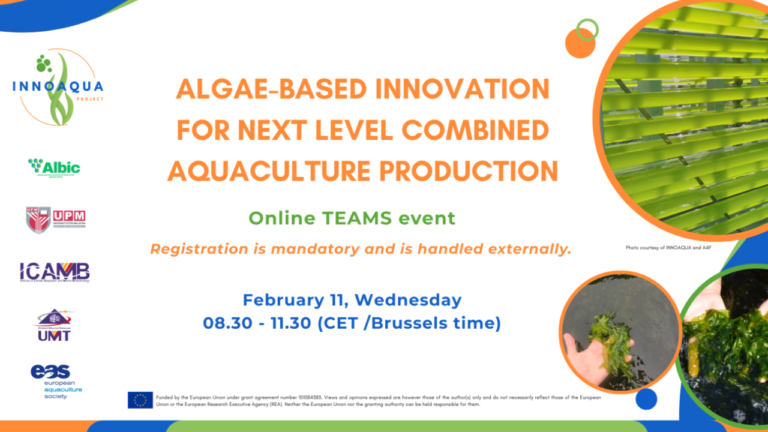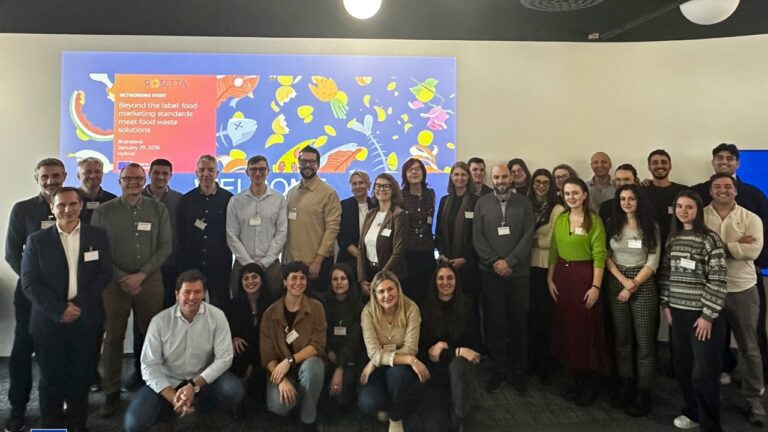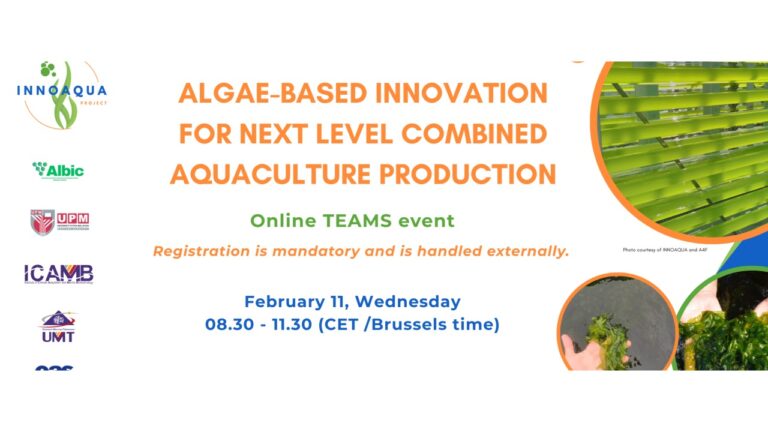Innoaqua
Project
Innovative approaches for an integrated use of algae in sustainable aquaculture practices and high-value food applications.
16 partners
joining forces to focus on Sustainable Aquaculture Practices for Innovative Seafood products.
The INNOAQUA project aims to pave the path towards the upcoming sustainable and diversified EU in-land aquaculture industry by leaning on the demonstration and mainstreaming of innovative algae-based foods and solutions, and ecology, circularity and digitalization concepts.

Key facts
0
Partners
0
Countries
0
Months
0
Operational
Objectives
0
.0
millions
in founding
Operational objetives
Objective 1
To implement an ecosystem approach for sustainable management of aquaculture production.
Objective 2
To demonstrate tools to limit the waste in aquaculture cultivation and processing.
Objective 3
To demonstrate processing methods to obtain new innovative (algae-based) seafood products.
Objective 4
To enhance the societal acceptance and market penetration of innovative seafood products through novel social simulation approaches.
Objective 5
To maximize wider uptake of INNOAQUA’s results during and after the project’s execution.
Algae
An important source of alternative low-carbon footprint protein.
Latest News
On 11 February 2026, the INNOAQUA Project, together with project partner the European Aquaculture Society (EAS) and leading international research institutions, hosted the online event “Algaebased innovation for nextlevel combined aquaculture production”. The session brought together more than 173 participants from Europe, Southeast Asia, and beyond, confirming the strong and growing interest in algaeintegrated aquaculture solutions.
On 29 January 2026, INNOAQUA project partner PEDAL took part in the ROSETTA International Networking Event, held at The Spot in Bratislava and streamed online via MS Teams. The hybrid event brought together more than 80 stakeholders from across the European food value chain, all united by a common objective: reducing food waste linked to food marketing standards and fostering more sustainable food systems.
The INNOAQUA Project is pleased to promote the upcoming online event “Algae-based innovation for next level combined aquaculture production”, organised by project partner European Aquaculture Society in collaboration with leading international research and innovation partners.


